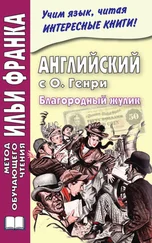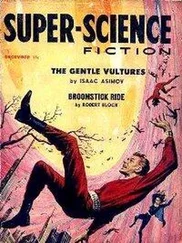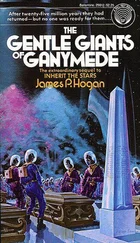R. Morris - The Gentle Axe
Здесь есть возможность читать онлайн «R. Morris - The Gentle Axe» весь текст электронной книги совершенно бесплатно (целиком полную версию без сокращений). В некоторых случаях можно слушать аудио, скачать через торрент в формате fb2 и присутствует краткое содержание. Год выпуска: 2008, ISBN: 2008, Издательство: Penguin Books, Жанр: Исторический детектив, на английском языке. Описание произведения, (предисловие) а так же отзывы посетителей доступны на портале библиотеки ЛибКат.
- Название:The Gentle Axe
- Автор:
- Издательство:Penguin Books
- Жанр:
- Год:2008
- ISBN:9780143113263
- Рейтинг книги:5 / 5. Голосов: 1
-
Избранное:Добавить в избранное
- Отзывы:
-
Ваша оценка:
- 100
- 1
- 2
- 3
- 4
- 5
The Gentle Axe: краткое содержание, описание и аннотация
Предлагаем к чтению аннотацию, описание, краткое содержание или предисловие (зависит от того, что написал сам автор книги «The Gentle Axe»). Если вы не нашли необходимую информацию о книге — напишите в комментариях, мы постараемся отыскать её.
The Gentle Axe — читать онлайн бесплатно полную книгу (весь текст) целиком
Ниже представлен текст книги, разбитый по страницам. Система сохранения места последней прочитанной страницы, позволяет с удобством читать онлайн бесплатно книгу «The Gentle Axe», без необходимости каждый раз заново искать на чём Вы остановились. Поставьте закладку, и сможете в любой момент перейти на страницу, на которой закончили чтение.
Интервал:
Закладка:
“What you are saying, more or less, is that the endeavor of translating philosophy is either futile or impossible.”
“If it is the latter, it is also the former.”
“But it is the endeavor to which you have devoted your life. It is what we do. It is our business.”
“There is nothing nobler than to devote one’s life to a futile enterprise.” This was said after a slight pause, with a cheerful, almost mischievous lilt.
Porfiry dismissed his guide with a deep bow and stepped into the doorway. He drummed his knuckles lightly on the open door, and the two men looked up.
They were as he had imagined them from their voices, almost exactly. The younger man was tall and thin, his legs especially so. He had a high-domed forehead and thinning hair. Perched on the edge of a desk behind which his companion sat, he looked up at Porfiry over a book, the pages of which he turned distractedly with long fingers. His face was pale, his expression somewhat severe: a small pinched mouth was drawn together in readiness for denial. His eyes were gray and cold. The seated man was portly but neat. He kept his beard trimmed, and his hair, though thick and long, was tidily combed. His age was approaching fifty, and he wore silver-framed reading glasses. Behind their glinting lenses, his quick black eyes shone with intelligence and humor. Though his figure was spreading and his face filling, he was still a handsome man, or at least he was still able to carry himself like one. A long straight nose gave his face strength in profile. Viewed frontally, a small cleft at the tip arrested the gaze. His mouth, which was generous in comparison to his companion’s, curved into a ready smile, whereas Porfiry noticed the other man’s frown deepen.
“Good day. This is the office of Athene publishing, is it not?” asked Porfiry.
“It is” came simultaneously from them both.
“And if I am not mistaken, I have the pleasure of addressing the two gentlemen who lodge at the house of Anna Alexandrovna Ivolgina, that is to say Osip Maximovich and Vadim Vasilyevich.”
The two friends looked at each other uncertainly.
“You do,” said the older man, who turned out to be the source of the lighter, higher voice. “I am Osip Maximovich Simonov. You have the advantage of us, sir.”
“I am Porfiry Petrovich.” Their faces were blank. “I was the investigating magistrate on the case of Stepan Sergeyevich Goryanchikov. I believe he occasionally did work for you?”
“Ah! So that’s what this is about,” said Osip Maximovich. “Please sit down.” But every spare seat in the office was already taken with a jerrybuilt tower of books or papers, or sometimes both.
“We’ve already given statements to the police,” said Vadim Vasilyevich, raising the book he was reading so that it covered his face. He also shifted the position of his gangling legs, swinging one knee across and turning his body away from Porfiry.
“Yes, you spoke to Lieutenant Salytov, I believe. I have read your statements. But this is not about that case. That case is closed.”
“I read about it in the gazettes,” said Osip Maximovich brightly. “Isn’t it your theory that Borya killed Goryanchikov and then took his own life? Poor Borya. Poor Goryanchikov. A tragic waste. He was one of our most inspired translators. You see, translating philosophy is not an exact science. As we were just discussing, the translator needs to engage his imagination. He must first understand what the philosopher means to say, before he attempts to render that meaning into another language. Take Hegel. He was not even understood by the Germans. He said himself, ‘One man has understood me, and even he hasn’t.’ But really, is it any wonder? Language, the only means we have available to us for expressing thought, is a far from perfect medium. We can say for certain that there are things that exist for which we have no words. Words simplify and reduce the universe. There is, moreover, a gradation of ideas that is not reflected in the divisive and categorical nature of language. Hegel showed, I think, that it is possible for an idea to contain within itself its opposite. A word cannot do the same. Yes, indeed.” Osip Maximovich broke off, suddenly morose. “An invaluable talent that boy had.”
“You said in your statement that the two men quarreled?”
“No,” said Osip Maximovich calmly. “I know nothing about it. I wasn’t here. I was eight hundred versts away. It was Vadim Vasilyevich who heard the argument.”
Vadim Vasilyevich fidgeted at the mention of his name.
“Ah yes, Osip Maximovich,” said Porfiry. “I remember. Anna Alexandrovna told me. You were on retreat in Optina Pustyn. You are a believer then?” Porfiry noticed the icon mounted high up in one corner of the room.
“Should I not be?”
“I would hazard a guess that some of the authors you have published are not.”
“Why if the case is closed are you asking us all these questions about it?” asked Vadim Vasilyevich with sudden hostility. It seemed his voice sank even lower when he was agitated.
“My dear Vadim Vasilyevich,” said Osip Maximovich smoothly. He smiled, but his eyes were stern.
“I was not asking questions about that case,” said Porfiry, with a flutter of his eyelids. “I was merely asking questions out of interest. You are right, that case is closed. But I have come here to talk to you about another case. I am here investigating the disappearance of one Alexei Spiridonovich Ratazyayev.”
There was a moment’s silence. Then Vadim Vasilyevich said, “We don’t know anyone by that name.”
“How about you, Osip Maximovich? Perhaps you would care to answer for yourself.”
“I think I may have heard the name Ratazyayev. Wasn’t he an actor? I may have seen him in something. Before your time, dear boy,” he added to Vadim Vasilyevich. “Ratazyayev, Ratazyayev. Yes, I think he was quite a celebrated actor at one time. And then something happened to him, I think. Drink, or some other scandal.”
“Well, he has disappeared now.”
“What has this to do with us?” asked Vadim Vasilyevich, finally standing away from the desk and exhibiting his full height.
“His name was found on a document belonging to Goryanchikov. Along with the name of another gentleman, one Konstantin Kirillovich Govorov.” Porfiry studied the two men closely for their reactions. Vadim Vasilyevich slammed his book with a sigh. Osip Maximovich smiled blandly. “Goryanchikov is linked to you because of the work he did for Athene publishing. He was working on a translation for you at the time of his death, wasn’t he?”
“Ah, yes. Proudhon. Philosophie de la misère, ” sighed Osip Maximovich regretfully.
“He also owned a number of philosophical volumes published by Athene. I believe they were copies of the books he had translated.”
“Moleschott, Büchner, Vogt, and Dühring,” said Vadim Vasilyevich. “Those are the authors he has done for us.”
“Yes, those are the ones I am referring to,” said Porfiry with an appreciative nod. “So you see, Ratazyayev is linked to Goryanchikov. And Goryanchikov leads me to you.”
“You say that Ratazyayev has disappeared,” said Osip Maximovich thoughtfully. “But surely people disappear all the time? He may simply have tired of living in St. Petersburg and moved to Moscow. One does not even have to look so far. Perhaps he is living in the Vyborg District. Not wishing for his old acquaintances to spoil his new suburban life-perhaps even ashamed of it-he is simply lying low. Perhaps he is no longer living the disreputable life of an actor but has joined the service. He may even be teaching in a girls’ school. Alternatively, he may have drunk himself into a stupor, fallen over in the street, and died from exposure. It is the sort of thing that occurs daily in our great city.”
Читать дальшеИнтервал:
Закладка:
Похожие книги на «The Gentle Axe»
Представляем Вашему вниманию похожие книги на «The Gentle Axe» списком для выбора. Мы отобрали схожую по названию и смыслу литературу в надежде предоставить читателям больше вариантов отыскать новые, интересные, ещё непрочитанные произведения.
Обсуждение, отзывы о книге «The Gentle Axe» и просто собственные мнения читателей. Оставьте ваши комментарии, напишите, что Вы думаете о произведении, его смысле или главных героях. Укажите что конкретно понравилось, а что нет, и почему Вы так считаете.












